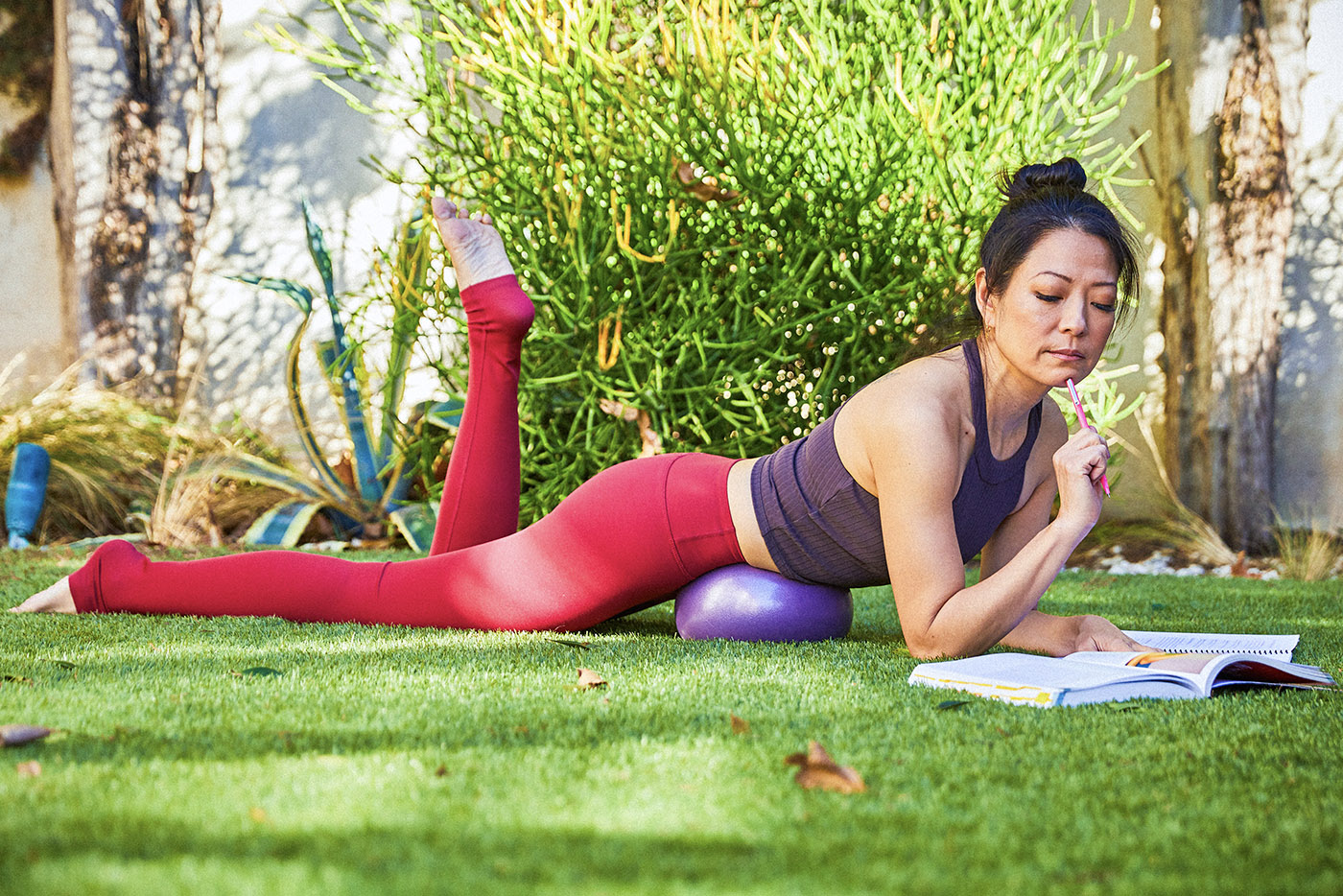
“Thousands of candles can be lit from a single candle, and the life of the candle will not be shortened. Happiness never decreases by being shared.” -Buddha
“I am enough. I have enough. I do enough.” These powerful words were shared during a group discussion in the Yoga Tune Up® Certification Training.
In that moment my body softened and I felt wholeheartedly in my center.
That moment was sweeter than the best piece of dark chocolate I have ever tasted. I couldn’t write the words down fast enough and I was excited to take them back to my yoga community.
Sankalpa, as defined by Jill Miller, is “A chosen internal resolution or intention that helps to positively reshape and influence one’s direction and purpose.”
Words are not just tools for communication. Words have the power to uplift, unite, bless and transform, as you will see in the examples in this post. They can change your mindset.
I recently closed one of my yoga classes with the powerful Sankalpa, “I am enough. I have enough. I do enough.” It then went on to make positive ripples into my community far beyond my expectations.
The Transformative Effect of a Powerful Sankalpa
A week or so after introducing this Sankalpa to my class, a long-time student of yoga named Alice disclosed the following:
“After hearing those words from you, I shared them with a friend from church over lunch. We had a long discussion about which statement fit each of us the most.
“We agreed that we both ‘had’ enough. I felt that I needed to constantly tell myself that I ‘do’ enough, especially since I just retired from full time work. My friend told me the story of being adopted and the parenting issues she had dealing with her own children. She found that I ‘am’ enough should be her mantra.
“A few days later, I was at church and the pastor used the phrase, ‘I am enough, I do enough, I have enough’ in the sermon. My friend had talked with the Pastor and shared it with her too.”
It was wonderful to know that these powerful words had spread far beyond the walls of my yoga classroom.
Why You Should Practice Changing Your Mind
As Jill Miller eloquently states, “Our actions, behaviors and decisions are the sum of our conscious and unconscious thoughts. With Sankalpa, we become more aware, while evolving the ways we relate to self and others.”
Personally, I admit that my negative inner dialogue trumps the praise I receive from others. I have even tried to fool myself thinking that “being hard on myself” will somehow make me stronger, more resilient, and less reactive to criticism from another.
Awareness of this limiting habit and how my inner dialogue “feels” in my body continue to be important steps in my healing.
The words that I choose and the stories that I tell myself do matter.
Practicing self-acceptance and compassion needn’t just be limited to things you do for yourself, but must also include thoughts, emotions, and overall mindset.
Your Sankalpa practice is like the gentle nudge, or the words of encouragement from your favorite teacher that you gift to yourself throughout your day.
Here is a poignant example of the power of Sankalpa from Tune Up trainer Dinneen Viggiano:
“My body heals itself”
Although I hold several sankalpas for different areas of my life. I come back to one or two with great frequency. “My body heals itself” is not only my Sankalpa, it’s a guiding principle for me and my family.
When my debilitating back pain was at its worst, I was deeply unsatisfied with the divergent passive therapeutic recommendations from the many doctors and professional therapists I was seeing.
“My body heals itself” taught me to step back, to listen and to think outside the diagnosis I had been assigned; this enabled me to zero in on what was really causing my discomfort which motivated me to find the right therapist and begin healing.
Fast forward ten years: Last year my son was diagnosed with a bone issue for which seven different NYC orthopedic doctors recommended various types of aggressive surgeries. We came back to “My body heals itself,” knowing that surgery would still be an option later on. I threw every nutritional and therapeutic skill I had at this issue and in eight months his body had indeed healed itself, without surgery.
“I have space to breathe and all the time I need“
My personal Sankalpa has saved me through incredibly stressful times as I was opening a new business at age 47 while also completing my level 1 Yoga Tune Up® training at Kripalu.
It’s been there with me when it was time to sell our family business after losing my father in a plane crash. It’s been in my “mind’s back pocket” when I needed a reminder to allow time for my own self-care as well as quality time with my family and friends.
It’s like my own love note to myself to slow down because: “I have space to breathe and all the time I need.”
“I am guided on my path and have faith in my journey.”
For 32 years, I was a professor of English who took exercise seriously, but only for one hour a day. I simply thought of movement as one important self-care ritual that could keep me on track with my career. But at age 50, I had strong insight that something needed to change.
The pain in my shoulders/face/back/neck was shouting: You have a problem and what you are doing is not solving the problem.
I started with yoga and that helped, but really, I had just applied a different exercise bandage to my body and left my mind to its own devices, which was indeed unfortunate. Why? Because the body can’t heal when the mind is a mess. And my mind was a mess: I carried stress with me all day, I couldn’t sleep, I took ibuprofen for pain, I kept pushing myself and added more and more to my “to do” list.
When I arrived at my Yoga Tune Up® teacher training I realized that what I needed was much more than another tool. For the first time, I began to think of myself in a relationship with my body and not in fix-it mentality. I followed along as Jill Miller led us through a process to develop my Sankalpa and arrived at the message: “I am guided on my path and have faith in my journey.”
“I practice with empathy and self-compassion”
My Sankalpa applies to life, working out and teaching.
It reminds me to be kind to myself, as there have been many times I am not.
Times I feel weak, feel fat, feel ugly, feel not worthy, I choose to say “this does not define me, I am enough regardless.” My present Sankalpa is “I practice with empathy and self-compassion.”
- It comes from within, addressing something about yourself that you’d like to strengthen, maintain or change.
- Inquire into your typical thoughts to find a belief you carry that leads to negative outcomes or results in your practice or life.
- Write that belief down so you can see exactly what it is.
- Now create an empowering message that counteracts or diminishes the power of that negative belief.
- Mentally, plant your Sankalpa like a seed. Use it during your yoga/meditation practice, write it on a Post-It® note, repeat it before going to sleep. Repeat it often.
- Speak the words out loud whenever possible. Notice how the words make you feel.
- Do not expect changes overnight. Practice awareness and notice how it feels when you remember.
- Be patient, stick with your Sankalpa until it brings results, then when you feel it has been firmly rooted and transformed that aspect of you, plant a new one.
If you have found the practice of Sankalpa to be powerful in changing your mindset, I would love to hear from you!
Tell me in the comments below, what negative belief do you carry that’s holding you back? What might your new Sankalpa be, to change your own mind, and thereby change you life…?You never know how your practice of changing your mind will help another.
This article is part of a larger discussion on Mental Health and Emotional Resiliency.
During the month of August we are sharing educational articles and interviews to help navigate the challenges and struggles brought forth from living amidst a pandemic. Our intention for sharing this curated list is so that you may learn new skills (or revisit old ones) to take care of your nervous system and incorporate breath, movement and mindset practices to increase emotional resiliency. We invite you to take what works, and allow the rest to fall away.
If you liked this article, we’ve curated a list of practical how-to’s, interviews, and more on mental health and emotional resiliency:
- How to Raise Self Awareness by Meredith Amann
“The unexamined life is not worth living” Socrates. Many people agree awareness, like mindfulness, is a skill, but could it be our hidden super power? - Learning to Say NO as an Act of Self Care by Kate Hamm
Just like yoga, saying No is a practice unto itself. - Compassionate Insight: Shifting How We Define Resilience by Emily Pantolone
Interested in building emotional resiliency? Self-compassion may be the entry point to expanding your perspective. - How to Approach and Support Mental Health When You Aren’t A Therapist by Ariel Kiley
Dr. Christopher Walling discusses mental health and the scope of practice for fitness, yoga and wellness teachers. - Why does it hurt? Demystifying pain. by Dinneen Viggiano
Do-at-home, no-equipment-needed, non-invasive therapeutic skills are indispensable for effectively managing stress, anxiety, exercise burnout, pain and more. Dinneen shares three self-care skills and accompanying practices to help you understand and transform your experience of pain.
Related Article: 3 Practices to Prepare for Big Life Change
Learn more about our Therapy Ball Products and Programs
Interested in video and blog content targeted to your interests?
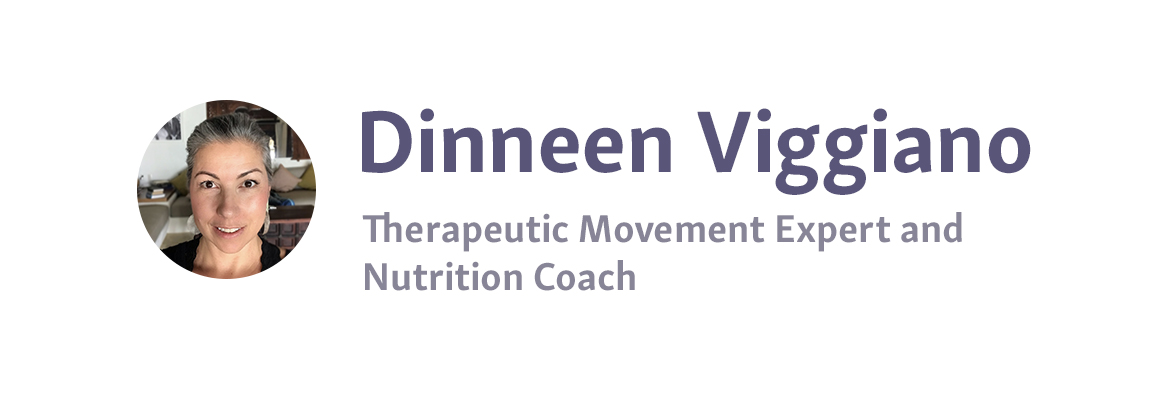
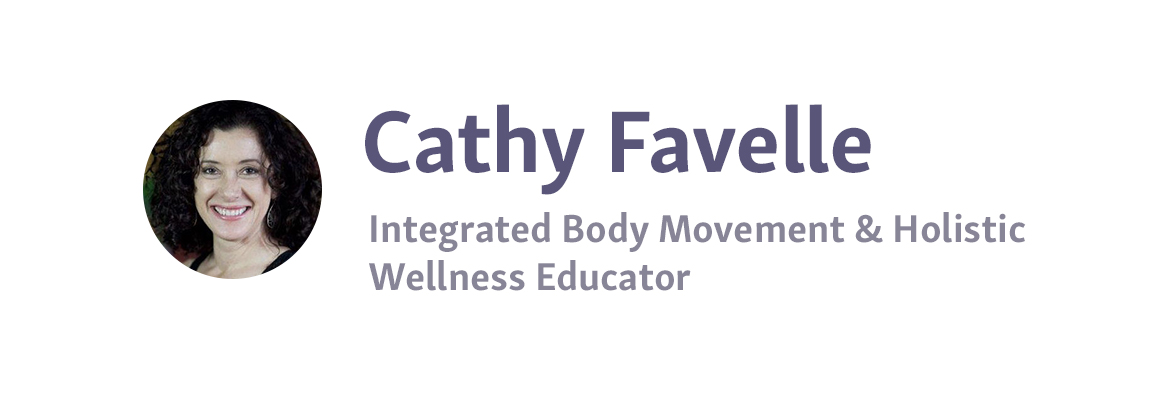
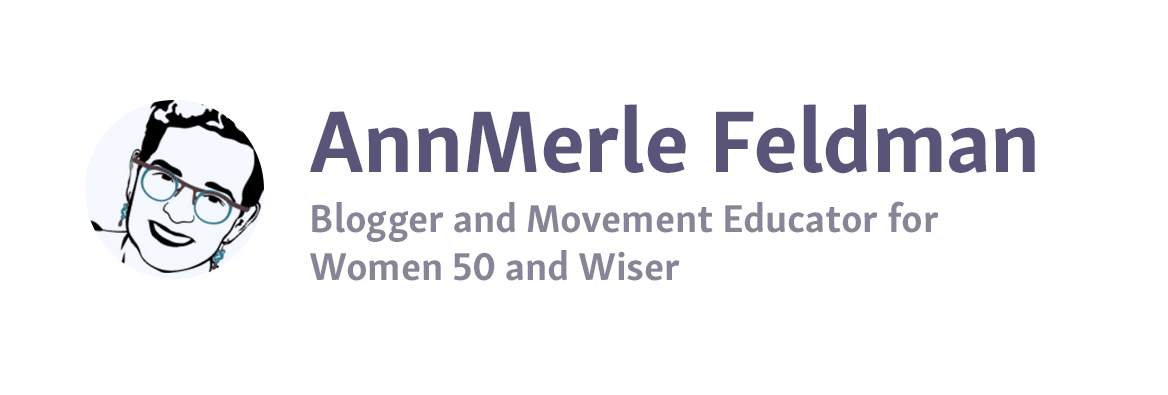
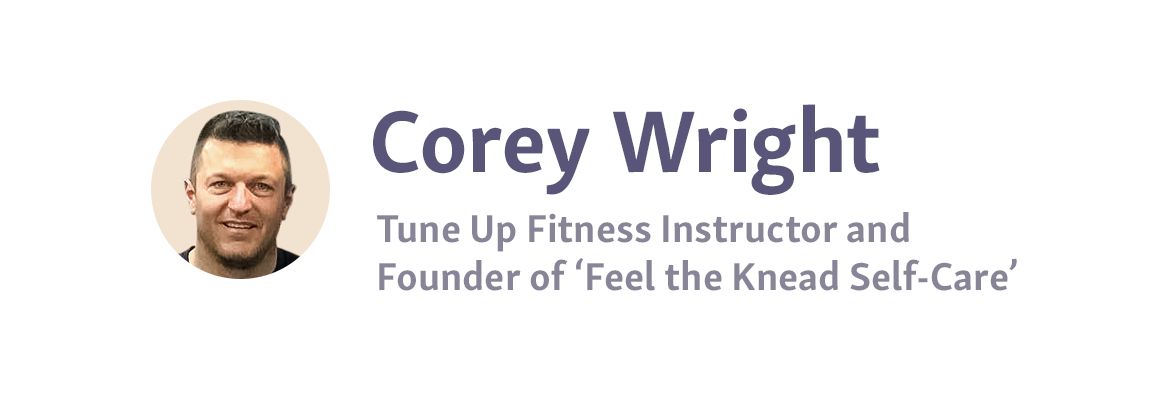



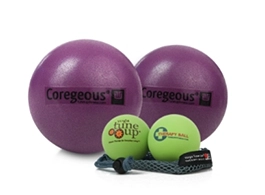
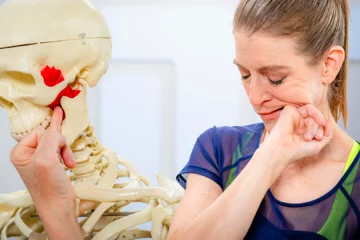




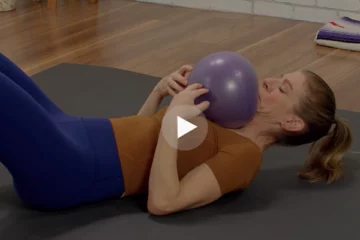
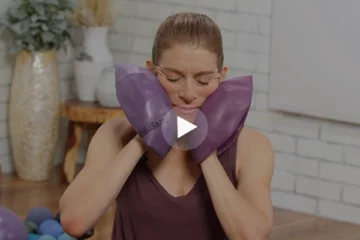
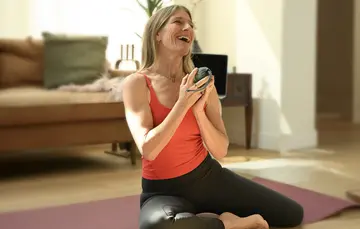

I was unfamiliar with the term Sankalpa until Yoga Tune Up training, and am finding it to be a very potent practice. I particularly appreciate the way it is taught, as a deeply personal (yet at times universal) and well-considered anchor of intention. It feels like a beautiful antidote to patterns of Samskara, the grooves of perception and thought forms we fall into. This is a practice worth cultivating over a lifetime, one of ongoing remembrance and refinement.
Cultivating my own Sankalpa felt very empowering. Using it during the Yoga Tune Up training helped create the daily practice of embedding this into my life.
I love hearing others sharing their Sankalpa’s & how it’s helping them root back down into their inner self.
My current sankalpa is : With every day on this earth, may you
– live authentically & intentionally
– lead with curiosity & passion
– love in your holistic healing
– serve in wholeness & in wellness
These words encapsulate everything I am striving to live out. At the end of each day, if I’ve followed my sankalpa, I can go rest content, satisfied, empowered and grateful
This article contains a huge amount of information on mental health. I bookmarked this article so I could come back to this later and re-read it. My sankulpa recently has been ‘I’ll lean into all that scares me.” Setting a tone for myself to take the leap to learn and grow and experience new things! Also reminding myself that its okay to step outside my comfort zone and embrace life.
My Sankalpa is “I am enough and I know enough to be successful.” For the decade that I have been teaching yoga, I have always felt like an imposter and have tried to take more and more trainings as if yet another certification will fix this sense of not-enoughness. With this sanklapla, I am trusting what I already know and to let that wisdom surface when it’s called. And also (this is a big one for me) to be okay with not knowing. That if a student asks me a question and I don’t know the answer, that that is not a reflection of me being a bad teacher but instead an opportunity to research and learn something new.
It took me some time to find my own Sankalpa: “I trust in me and in the Universe”. Because of the explanations during my Yoga Tune Up Certification Training and the steps Jill gaves us, I created my first one and I implement it every day as often as I can. I’m absolutely sure that it’ll work!
My Sankalpa changed to “I am enough” at the end of Yoga Tune Up® training. Life changing!
“My body heals itself” is one of my sankalpa’s I’ve just realized. How powerful these phrases/ mantra’s/ intents are used in our daily lives without us even acknowledging our useage of sankalpa. Now that I realize this these tools can become exemplified when we set our intentions alongside it’s useage.
I love the examples of different sankalpas, along with the stories and experiences that inform them. Each one is so unique and insightful. Mine right now is ‘my voice matters’. As a relatively quiet person, I tend to shy away from attention, but I can also tell that expression is where the treasure awaits.
Superbe tous ces témoignages de Sankalpa, merciii ! J’ai en un actuellement qui me permet de me dépasser et je commence à en ressentir les bienfaits !
Étant en formation pour devenir professeur de Yoga Tune Up, j’ai découvert ce qu’était le Sankalpa. Je constate qu’il peut être très puissant et nous aide à garder le cap…exemple pour moi: Je fais confiance au processus!!!! comme les enseignantes nous disent. Cela m’aide à garder le focus et à ne pas laisser le doute s’installer et à me faire perdre mes moyens.
J’ai trouvé le mien…je me le répète et cela m’aide à poursuivre vers ma mission
I was given the opportunity to create my first Sankalpa at my YTU training, and I am in love with this process of tuning into my emotional mind instead of letting it lead me astray. This has already become a part of my daily practise and i am grateful for this.
I attended YTU certification training recently and I couldn’t be more glad that first thing on day 1 that Jill asked us to work on was Sankalpa. My Sankalpa was the singular thing that made me persevere through the intensive training program. Intention is everything and a right one will empower you time and time again.
Jill is the first person who ever brought my attention to Sankalpa. At first, it reminded me of a mantra and it wasn’t until i faced a moment of defeat in her program that i truly understood what it meant for me. “I choose” became my sankalpa. it brings me to the present moment of where I haven chosen or choose to be. It makes me accountable for my actions and decisions. We all have control over our actions/decisions and “I choose” empowers me to decide. WOW! so simple, yet so pungent.
My sankalpa helped me throughout the Tune up yoga teacher training.
He has supported me in various intense and demanding moments of my life as well and he helps me to live in consciousness, free and joyful.
Je pense que la pratique de la Sankalpa occupe une grosse partie du yoga. Elle nous permet de voir notre discours mental qui parfois peut être négatif sans que l’on s’en rendre compte. Ma Sankalpa est : mon opinion est importante
I have been in a relationship with a passive agressive men for 24 years. The psychological violence was insidious. He left me, by texto, during the pandemic for another women when i needed him to take is parental duties seriously. My body took the pain. My brain understand that i will be fine, even great without him. But still my body react at the trauma. My sankalpa reminde me every day that i’m stronger than i thought and direct my energy on something positive. Something real, that i have power upon to direct me towards the real me. The one i forgot for too long.
Starting my practice… finding my Sankalpa :
i create my reality, i love myself enough to chose it.
Thanks for sharing yours ?? and the inshights to creating a solid ground to build upon
My Sankalpa: “I awaken my body to sensations. I respect my body’s limitations. My body is my temple.” Prior to establishing this Sankalpa, I had a “soldier on” and “suck it up buttercup” attitude. This attitude did improve my performance temporarily, but was detrimental in the long run. I disregarded pain to the point where I couldn’t feel much anymore. With my Sankalpa, my body and mind are at peace (which could be another Sankalpa ;).
The first step of chosen the Sankalpa is a journey to find the myself, to find the Karma. By chosen the Sankalpa, is a rappel of Karma to approach more and more who are we and why we are here. Thanks!
The first step of chosen the Sankalpa is a journey to find the myself, to find the Karma. By chosen the Sankalpa, is a rappel of Karma to approach more and more who are we and why we are here. Thanks!
Reducing my pain with “My Body is Healing”!
My sankalpa for my week long YTU has followed me everywhere this week, not just in the practice space. I’m grateful for the perspective and the practical way to focus on this intention set before me. I look forward to seeing how this transforms my experience this week.
I had never created my own Sankalpa before going through my YTU Training Course. By the last day of class, even though the class as a whole was more comfortable with one another, it was still so important to say our Sankalpa’s to ourselves as we stood before the class to teach. This was comforting to me as a non-yoga teacher in a room full of very experienced teachers.
Thanks for this beautiful article, I agree that we all should create out own sankalpa, or even more than one sankalpa, it´s a very efective way to remind us what really matters and to help us achieve our goals and dreams. Thanks for sharing !
Sankalpas are a very important and helpful resource in order to change or heal an old mindset which is not functioning in a positive way anymore. I identify so much with “I am enough, I have enough, I do enough” This Sankalpa, for me has helped me deal with those times in which I feel regardless Im putting all my effort in a certain activity that Im not doing enough, or those times when negative thougth arise to my head. I found this practice so important and a very game changer on a person life and even more in those who tend to have negative thougths about everything.
Thank you to everyone who contributed to this post. “It’s like a love note to myself to slow down” is so incredibly accurate. If I am not kind and encouraging to myself, how can I possibly expect to authentically show up and encourage others to act that way towards themselves? ” The body can’t heal when the mind is a mess.” That has rung true many times in my life. Once I take the time to slow down and genuinely address the root of the issue, clarity comes and healing starts. I love the idea of the Sankalpa as a seed you plant, and when it’s rooted and grown, you plant a new one!
Thank you for this article and for opening up the world of “Sankalpa” to me! As a new (soon-to-be) yoga teacher, I find it difficult to explain what Sankalpa is about to my fellow students. Reading your blog has given me some wonderful phrasing that I can include in my explanation. My favorite one is “I have space to breathe and all the time I need” from Cathy Favelle as it reminds me to slow down and allow time for my own self-care and quality time with my love ones. Each time I read your post, it gives me a different perspective and more details to creating my own version of Sankalpa!
Thanks for this post, Beth. Reading various teachers’ experiences was moving to me. Having unexplained chronic pain for 30 years, my sankalpa became, “It’s okay. It’ll pass.” It’s not profound, but it was all I could do during spikes in my condition. My condition also made me feel like I was unfixable. So similar to you, I used, “I’m enough.” Eventually this boiled down to, “Enough.” I’ve conditioned myself so much with this sankalpa that now in times of stress and negative self-thinking, I hear that voice start up without prompting: “Enough.” I love also how you list out how to create a sankalpa. It’s so simple and effective. Thanks again.
Really enjoyed reading these personal Sankalpas. I think the beauty of creating a sankalpa is that it can be life-long and steady and it can also ebb and flow with time. It’s such a unique and powerful experience to create these seeds in our intention and see where they flourish to.
Ms. Feldman’s Sankalpa is very similar to my own. It reminds me to slow down and trust in the process.
Sankalpa is so important, they are our fundamental attitude of how we present ourselves and how we see things and people around us. with positive Sankalpa, everything can be an great opportunity to grow and become closer to our Sankalpa!
I really like your article! “Being hard on myself” was also once my way to think about getting better and stronger… Including Sankalpa into my practice has a profound impact on me, to connect the body and the mind!
This summer I developed psoriasis on my face for the first time – pretty embarrassing especially when it’s on your face. I created a new sankalpa “I have resilient skin”. And I have to say that even a month later, my skin is making other small improvements besides just the psoriasis. I think that the sankalpa sparks magic with the words alone, and it also subconsciously reminds me to experiment with different methods of caring for my skin that lead to the end result.
It is so good , I am enough. I have enough. I do enough. It seems like a mantra,repeating it again and again, some relief arising from inside of mybody.
I never really thought of a sankalpa until I did my YTU Certification. I was surprised at what I chose, but its what came up during the process of crafting one, so I’ve been rolling with it. As challenging as it to remember to say it to myself (especially when I really need it), I know it will really help me in this journey.
I love the idea of having a positive internal dialogue that supports yourself and others. It is an evolving idea as well. Once you have integrated one Sankalpa and it is working for you, you create another. 🙂
In yoga tune up I am learning the value and the power of Sankalpa. And my “personal” Sankalpa has a power to uplift me and my energy. The example of powerful Sankalpa for me is: “I am enough the way I am and I am grateful for the present moment”. Also my Sankalpa is not a definition; it is a process which is happening and which is changing my mind.
This post is such a powerful reminder that we all have the tools within us to make a change in the direction of our life. The practice of defining a Sankalpa has both inspired me and focused my intention as I embark on the Yoga Tune Up Certification Training.